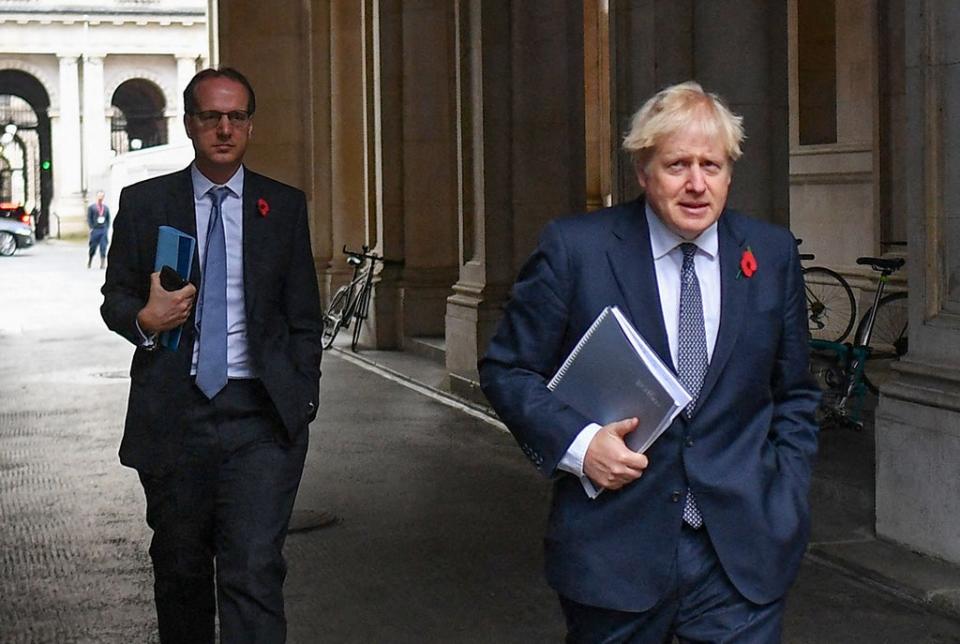‘No comment’: Cabinet minister dodges questions on whether partygate civil servant should be Saudi Arabia ambassador

A Cabinet minister refused four times on Thursday to say whether it would be a good idea to send an ex-No10 top civil servant at the centre of the partygate scandal to be Britain’s next ambassador to Saudi Arabia given the country’s strict rules on alcohol.
Martin Reynolds, who was Boris Johnson’s Principal Private Secretary, was named in the Sue Gray report as having an email sent out on his behalf to around 200 staff across No10 Downing Street, inviting them to a “bring your own booze” party on May 20, 2020, when England was under lockdown laws.
It is not known if he was fined for any events investigated by Scotland Yard.
But Mr Reynolds, who previously was the UK’s ambassdor to Libya, is now mooted to be in line to be Britain’s top diplomat in Riyadh.
Cabinet Office minister Steve Barclay was asked repeatedly on LBC Radio about such an appointment going ahead given his role in partygate.
“I don’t think ministers should get into commenting on the HR practices and so forth...,” he first responded.
Pressed by presenter Nick Ferrari whether appointing Mr Reynolds to be the UK’s ambassador to Saudi Arabia, given its strict rules on alcohol, would be a “bit of a stretch”, Mr Barclay said he would not “get into” individual cases.
Saudi Arabia has strict rules on alcohol and the UK’s Foreign Office travel advice states: “Penalties for the possession of, or trade in alcohol are severe. Both result in prison sentences. Do not arrive in Saudi Arabia under the influence of alcohol.”
Asked whether Mr Reynolds’ role in partygate would “sit well” in Riyadh, Mr Barclay said: “It mischaracterises the bulk of what was going on in terms of Downing Street and the massive work that went on in terms of getting the vaccine out.”
Mr Reynolds was appointed Principal Private Secretary to the Prime Minister in October 2019, having been ambassador to Libya.
He also worked as Principal Private Secretary to the Foreign Secretary from December 2014 to January 2018, Deputy High Commissioner in Pretoria from 2011 to 2014, as well as other roles in London and in Brussels and Singapore.
Before joining the Foreign Office, he worked as a lawyer in the City.

 Yahoo News
Yahoo News 